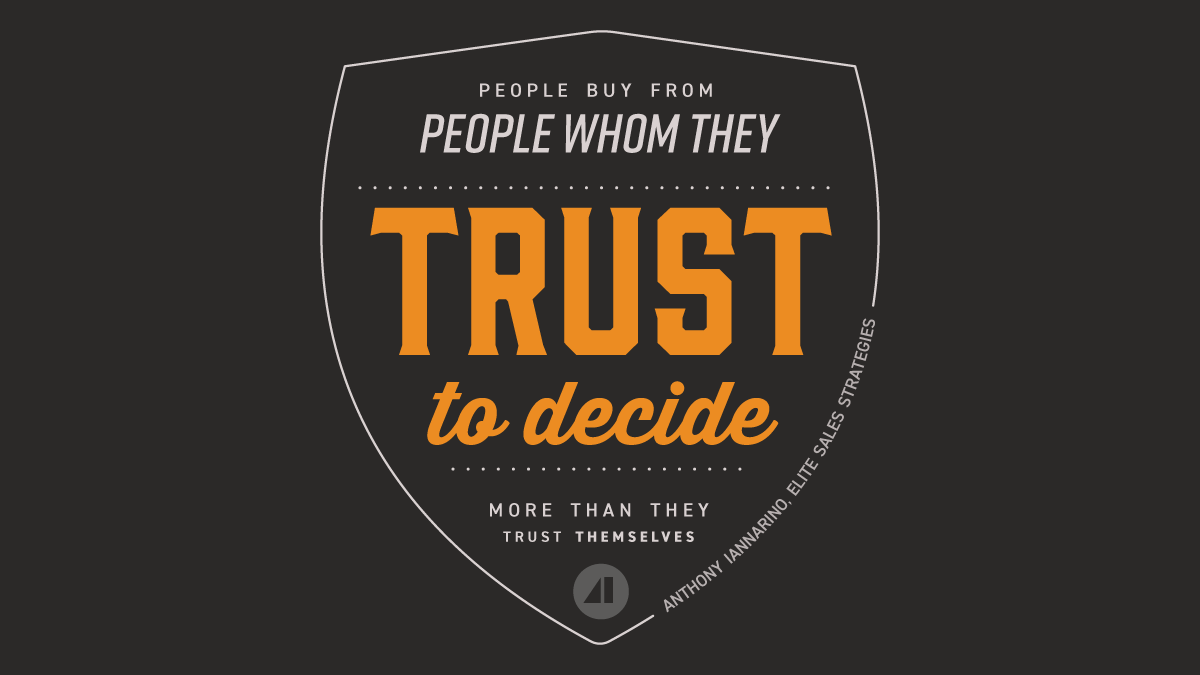A decision maker is defined by their title. A person who is charged with making a decision, especially one with the potential of negative consequences, has an obligation to make the best possible decision for their company and the better future results they need. Throughout human history, leaders charged with making decisions have relied on advisors who could provide a perspective that would inform their decisions, increasing their ability to better understand the decision and the potential outcomes.
The current environment is one of increasing uncertainty, making it more difficult for decision makers to confidently make decisions that, in a more stable environment, may have been easy to make. You will find in the concept of being One-Up in Elite Sales Strategies: A Guide to Being One-Up, Creating Value, and Becoming Truly Consultative. It is critical to being a trusted advisor. The idea of being One-Up means you have knowledge and experience that your client is missing, and that you are able to transfer that through your counsel, advice, and recommendations.
One who wants to be both a consultative salesperson and a trusted advisor needs to answer the question as to why they belong in the room next to the decision maker who is considering their options and deciding what to do.
Proving You Don't Deserve to Be in the Room
The One-Down salesperson believes they belong in the room with the client because they have a solution that will help the client improve their result. That idea disqualifies them from belonging in the room. This legacy approach to sales is far too transactional to create the value a decision-maker needs while assessing their options. There are decisions before the decision of what to buy and who from.
If you believe a decision maker is defined by the fact they make decisions, any approach that avoids helping the client make the best decision is one that will preclude you from being in the room. The mistake is believing the decision is what to buy and from whom.
Being One-Down means you know less than your client does about the decision they are making and the better results they need. In the past, it was enough to present your company and your solution, but because the environment is nothing like the past, a lack of insights and advice will have you politely removed from the room where a decision is being considered. Being an expert on your company and your solution doesn't enable anyone to make the best decision for another company.
No decision maker needs a One-Down salesperson. Those who can't provide any perspective, advice, or recommendations about how to make the decision is of no use to a decision maker.
How to Prove You Deserve to Be in the Room
A One-Up salesperson has the knowledge and experience that creates a certain type of information disparity between themselves and the decision maker has a distinct advantage when it comes to helping the client decide what to do, why to do it, and how to do it.
By not trying to address your company as the right party to buy from and pitching your solution early in the conversation, you only suggest your primary concern is making a sale.
When you replace that legacy, One-Down approach, your sole focus is on helping the client with their decision and creating the right type of value. This is called decision enablement.
How to Decide
A person required to decide needs to know what factors they need to consider, why these factors matter to the decision, and how to weigh them. One-Down salespeople believe the most important question they need to ask their client is "What is your problem?" because that leads directly to their solution.
One-Up salespeople ask questions that allow them to help their prospective clients to provide the context that allows them to recognize which factors are going to be critical, and which factors are not going to matter much to their decision.
What Your Client Should Do
The best outcome for a client struggling to make a decision is to have the help of someone with the experience to make the best decision for them. Even though the decision maker is going to have to make a decision, there is no reason they should be uninformed when there are people who can help them.
The salesperson who believes the client is going to make the decision without consultation doesn't understand that when a knowledgeable salesperson offers client advice and recommendations, they have essentially made the decision for their client. But this is not true when all the salesperson has to offer is a recommendation of buying the "solution" they are selling.
Why Your Client Should Make a Certain Decision
The One-Up salesperson who is truly a consultative, trusted advisor will help explain why the client should make the decision they recommend. A leader will want to understand the decision well enough that they can help others recognize why they made it and why it is the best decision.
Most of the time, the decision maker will be surrounded by people who are going to weigh in on a significant decision, meaning that you are enabling the group of stakeholders. While every additional stakeholder adds another challenge, teaching the client how to make the best decision is more effective than trying to get them to decide to buy your solution from your company, as it creates no value that would cause the decision maker and their team to prefer to buy from you.
Deserve to Be In the Room
The most important decision you can make yourself is to do the work to be One-Up, work that allows you to be the person your clients ask to join them when they need to make a change.









.jpg?width=768&height=994&name=salescall-planner-ebook-v3-1-cover%20(1).jpg)


